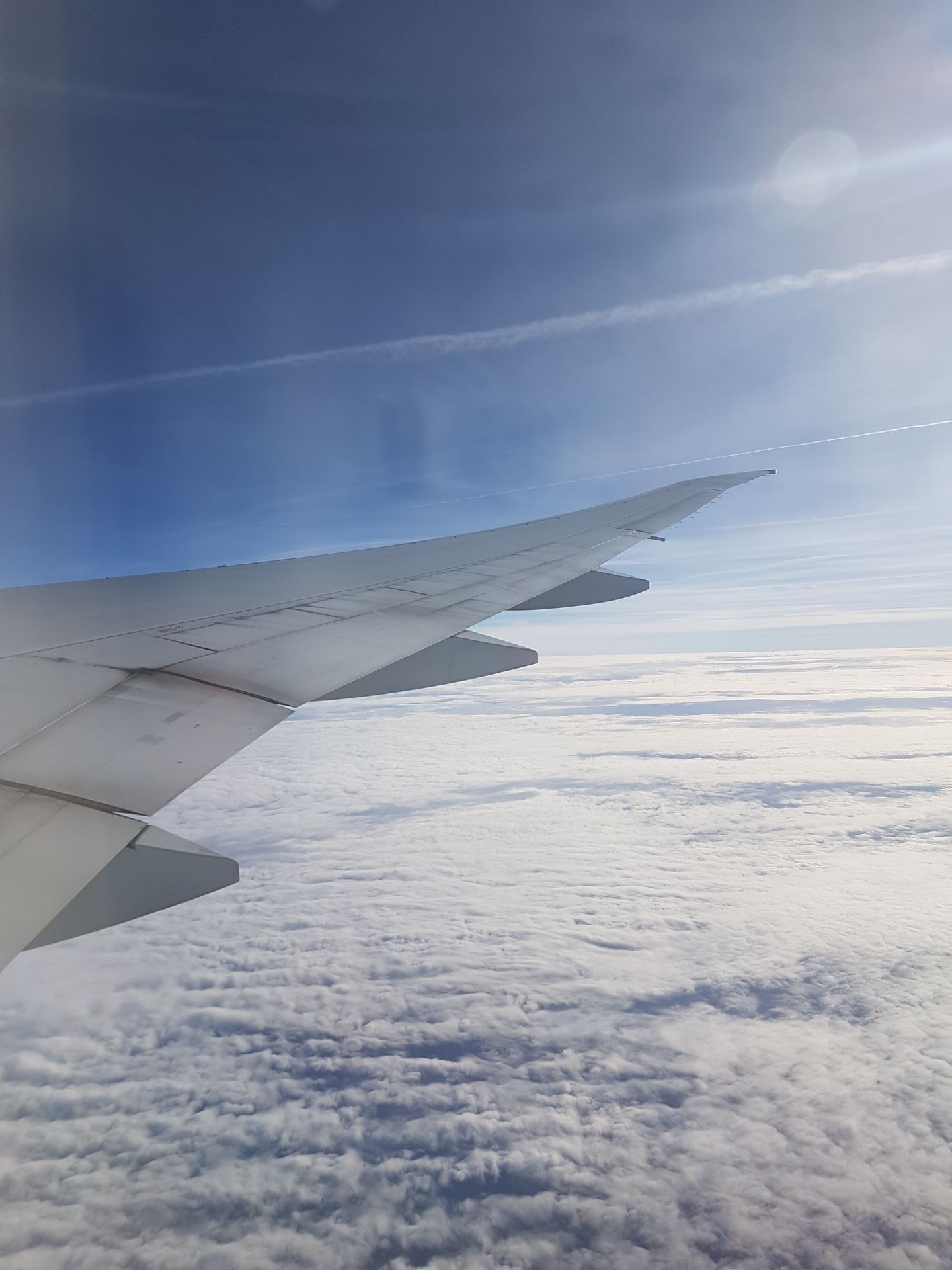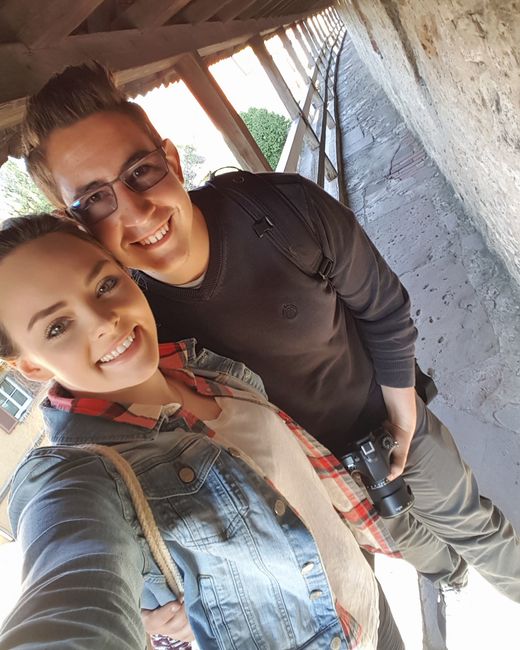13/12/2017 - Looking for Gold
प्रकाशित: 29.12.2017
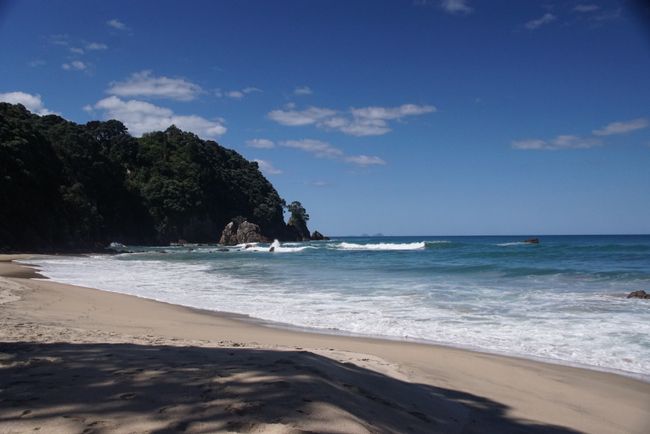
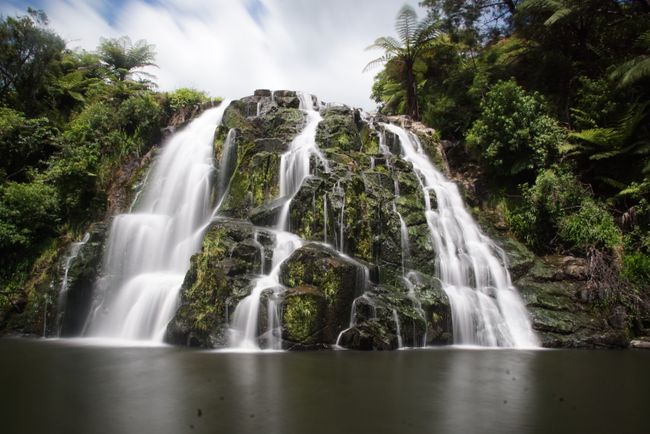
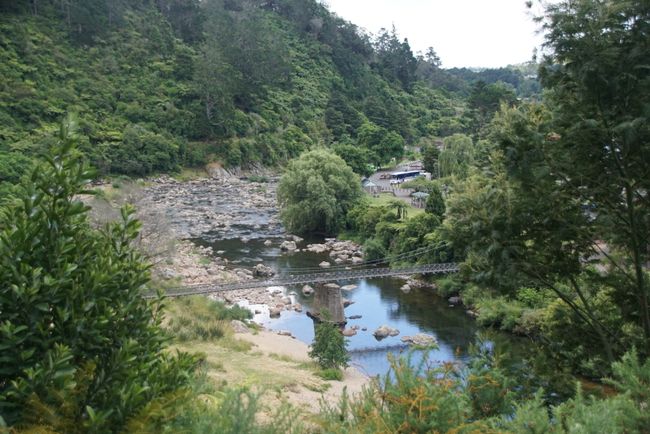
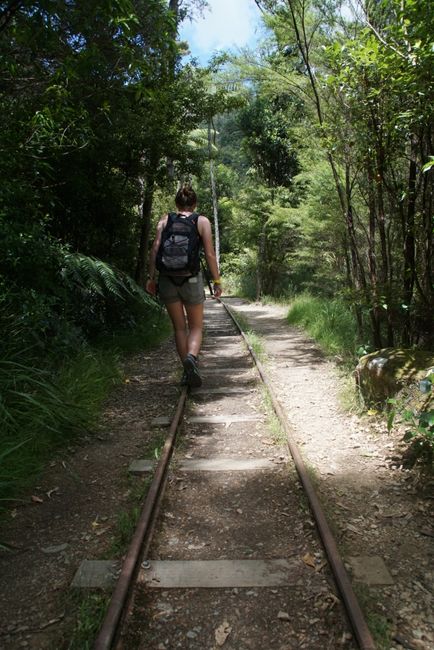
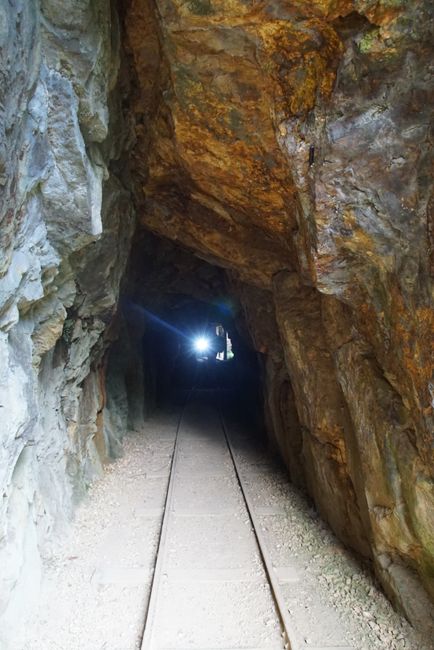
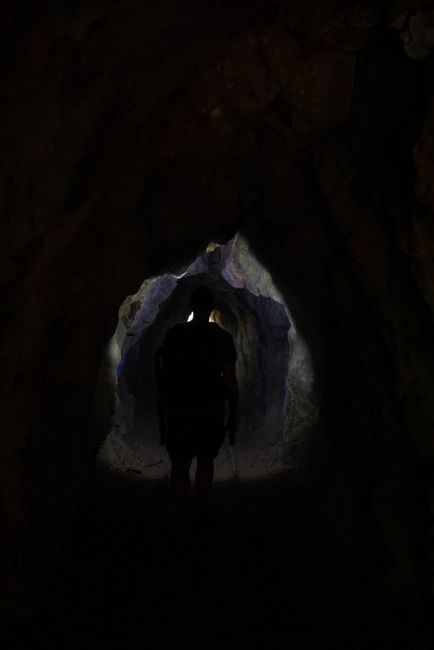
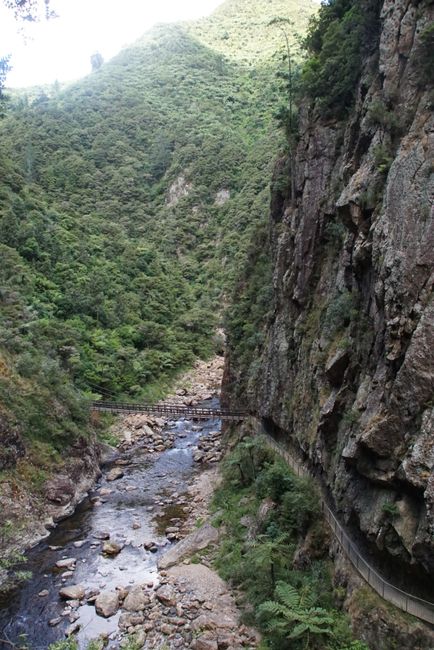
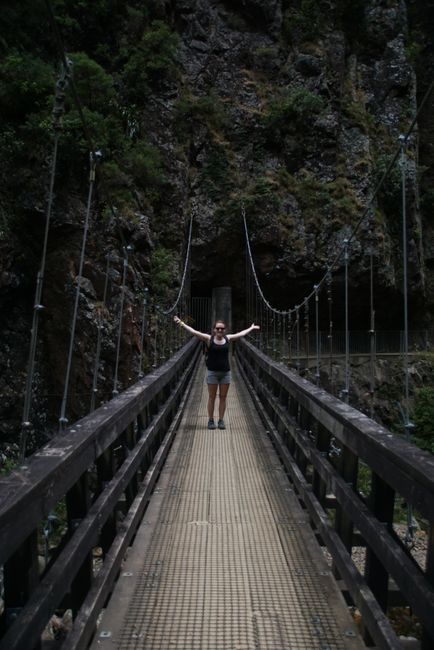
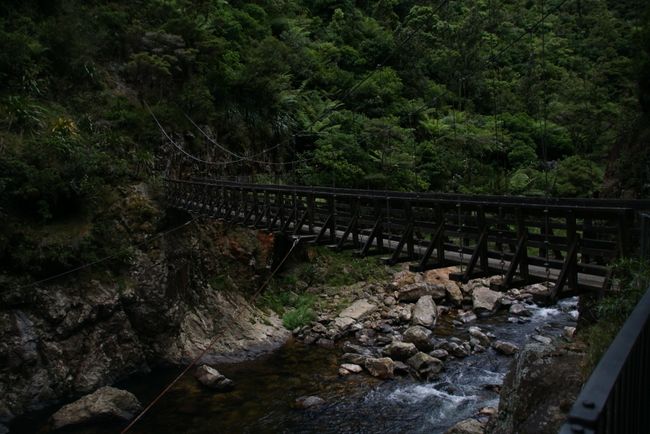
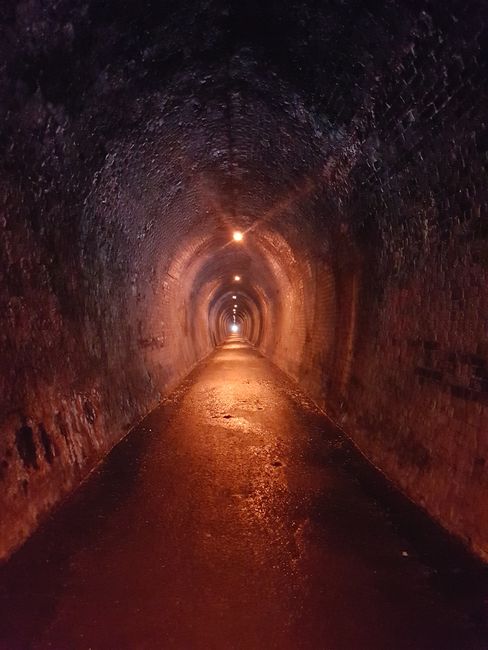
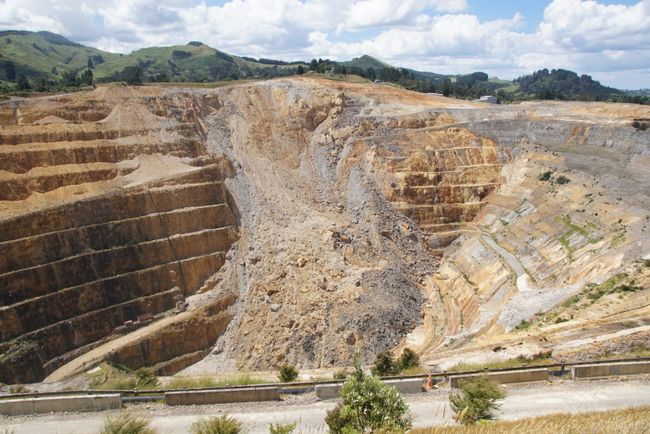
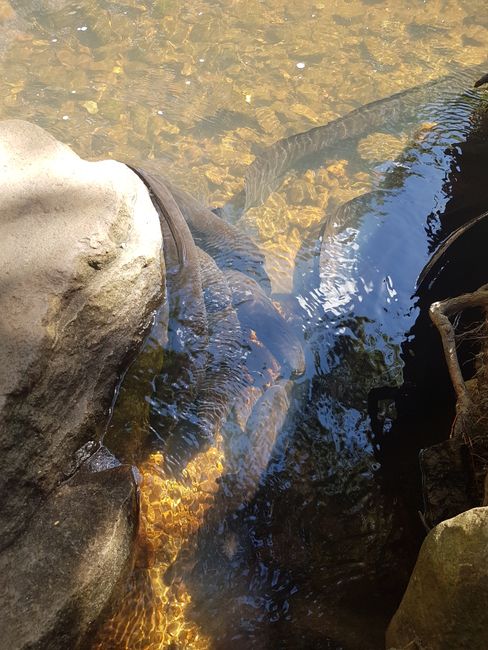
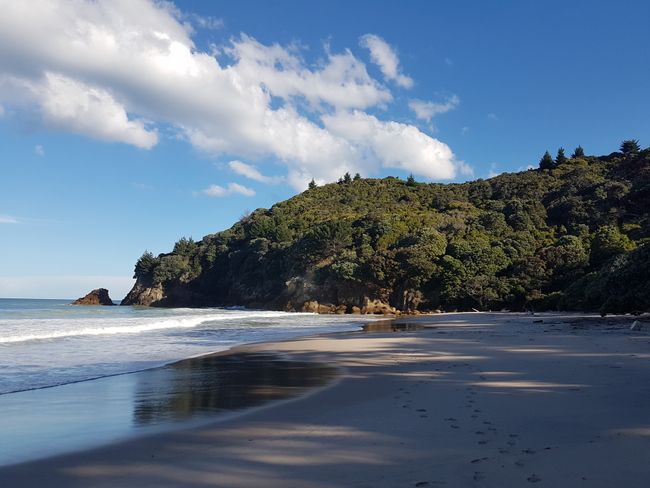
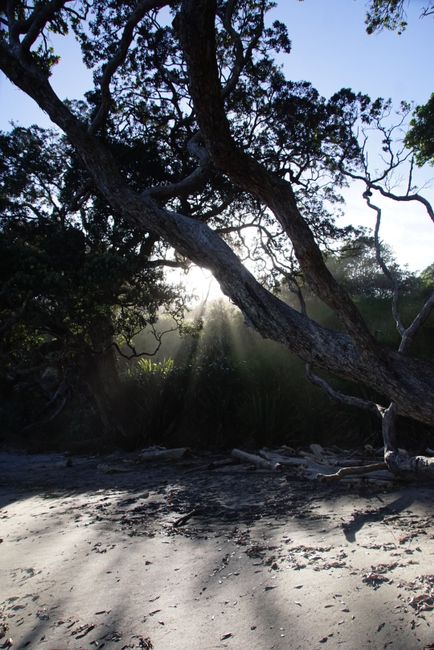
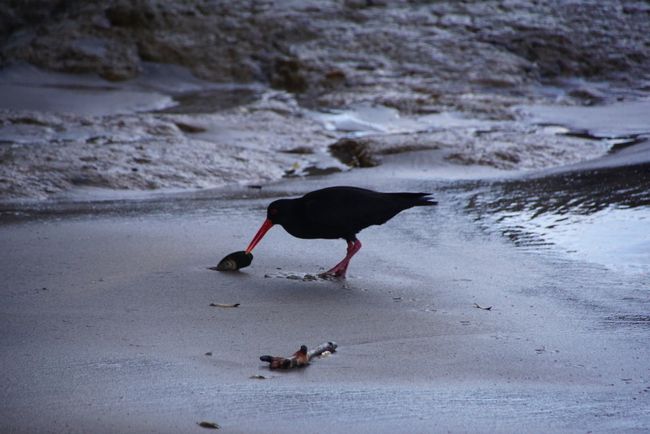
समाचारपत्रको सदस्यता लिनुहोस्
The day before, we drove to Waihi. On the way, we passed 'Paku Hill' in Tairua, visited the library, and took a beach walk to 'Octopus Bay' in Onemana. This beach is a little gem and can only be reached by a longer and narrower trail - but it's worth it. :)
After that, we quickly went shopping and headed to the new campsite in Waihi Beach.
After breakfast, we first went to 'Owharoa Falls'. On site, we saw a relatively wide, less high waterfall. As often, we set up the camera and tripod and took some long exposure photos.
This beautiful spot is also enjoyed as a bathing place.
After visiting the waterfalls, we went to a decommissioned gold mine.
The area around Waihi was one of the most important gold mining areas in the world. For years, the region was known for its gold and silver mining. Since one of the gold mines is located in the center of Waihi, one can imagine how dependent the city was on mining.
However, the gold mine, which we initially visited, is located a bit outside of Waihi. In the middle of the 'Karangahake Gorge', there are several well-constructed hiking trails that lead through and alongside old mines. Upon arrival at the parking lot, we first started the one-and-a-half-hour 'Windows Walk'. This led past old mine structures. There were still remnants of buildings and the train tracks. On the way, we could enjoy the view of the gorge and the 'Ohinemuri River'. We followed the old tracks and arrived at a tunnel of the 'Crown Mine'. Equipped with flashlights and headlamps, we explored the tunnel on our own. The path led us deeper into the mountain - the air became cooler, the ground and walls became damp. But we didn't get far - besides a few glowworms, we didn't find any valuable treasures. Back on the official hiking trail, we crossed suspension bridges towards the parking lot. Another hiking route takes you through an old, approximately one kilometer long, train tunnel.
At this point, it should be noted that in New Zealand, you often have the opportunity to visit such attractions for free.
Now, we headed back to Waihi. We made a stop on the main road and visited the 'Martha Mine'. It is the largest gold and silver mine in all of New Zealand. At its peak, the mine supplied about 80% of the total production of gold and silver. However, production has been gradually reduced since 2007. The mine is now closed.
After we went shopping, we drove back to the campsite. After a small snack, we visited the local eels. We observed the slippery creatures for quite some time before we could muster the courage to gently stroke them. Since it was allowed to feed them, they seemed trustworthy - they kept looking curiously upwards. The eels felt cold, delicate, and slippery. :) After the animal experience, we headed to our last destination. On the edge of Waihi Beach, there is a popular jogging track for the locals. It leads over a small mountain along the coast to an abandoned beach. Due to the tide, we couldn't reach the official start of the track and followed a narrow path instead. It had the same direction, but was poorly maintained. It went up and down, over logs and rocks. We could only orient ourselves by small red markings. At one point, it went particularly steep downhill and we could barely hold onto trees. Out of nowhere, we heard a loud rustling and another guy 'fell' down the mountain. With great effort and us as stoppers, he managed to stop just in time. After briefly asking if everything was okay, he confirmed and continued running down the mountain... Somewhat shocked and confused, we continued our way - but much slower than the madman. In hindsight, we suspect that the red markings are used by the parkour runner as reference points for holding or ducking, and he regularly completes the route at a high speed. On that day, we probably didn't help him set a new record.A few meters after this curious encounter, we reached the official hiking trail. It was much better maintained and apart from a few joggers, we didn't come across any extraordinary people.
When we arrived at the beach, we walked up and down the entire length. From a distance, we already spotted a New Zealand oystercatcher. It was in the process of breaking open a shell. When it finished eating, it looked for more. Tobi spotted one between the rocks and threw it to the hungry bird. It curiously ran towards the shell and began to open it. Both were very happy - Tobi fed an oystercatcher and the oystercatcher gratefully accepted the shell.
It was getting late. So we followed the official path back to Waihi Beach and arrived at the campsite after 45 minutes. As a reward, we jumped into the campsite's heated pool - what a relaxation after this day full of walking.
समाचारपत्रको सदस्यता लिनुहोस्
जवाफ

यात्रा रिपोर्टहरू न्युजिल्याण्ड
